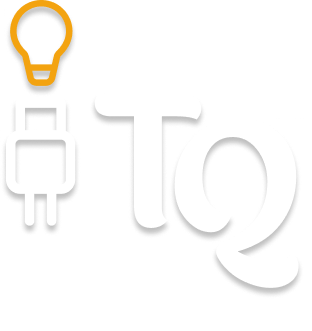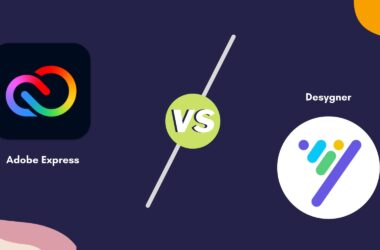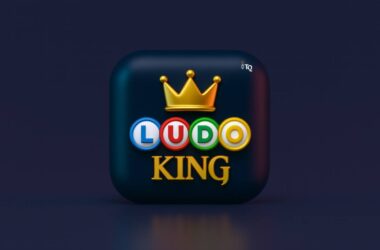Journaling isn’t what it used to be. You no longer need to carry a notebook or find the “right time” to write. Today, journaling can be done in a moment, on your iPhone or iPad, whether you’re on the bus, in bed, or waiting for your coffee. And honestly, that’s what makes it easier to stay consistent.
The best journal apps for iPhone and iPad are not just about typing words. They’re a space where you can slow down, collect your thoughts, and keep track of what really matters to you. Whether it’s a happy memory, a moment of clarity, or even a day that just felt heavy, journaling helps you hold onto it.
But with so many apps out there, it’s hard to pick one that actually feels right. Some are built for deep reflection, others are simple and quick, and a few are made to feel like a private sanctuary you can go back to any time. In this guide, we’ve rounded up the top journal apps you can download right now, ready to help you build a journaling habit that sticks.
So, if you’re looking for a gentle nudge to reflect more, process better, or simply remember life as it happens, you’re in the right place.
Let’s take a look at the ones that really stand out.
15 Best Journal Apps for iPhone and iPad
| App Name | Get on your iPhone/iPad |
|---|---|
| Day One | Download Now |
| Journey | Download Now |
| Reflectly | Download Now |
| Diarium | Download Now |
| Grid Diary | Download Now |
| Zinnia | Download Now |
| Daylio | Download Now |
| Momento | Download Now |
| Stoic | Download Now |
| Daybook | Download Now |
| Presently | Download Now |
| Penzu | Download Now |
| Reflect | Download Now |
| Five Minute Journal | Download Now |
| Nebula | Download Now |
1. Day One Journal
Day One is often the first app that comes to mind when people talk about digital journaling, and for good reason. It’s clean, private, beautifully designed, and it makes writing feel natural. Whether you’re new to journaling or have years of entries behind you, Day One gives you the kind of space that feels personal and easy to come back to.
One of the best things about Day One is how it blends different types of entries. You can write a simple note, add photos, record voice entries, or even attach short videos. If you want to look back on how your days felt, Day One automatically tags your location, the weather, and even what music was playing when you wrote the entry. It’s thoughtful and intuitive without ever getting in your way.
For those who care deeply about privacy, Day One offers end-to-end encryption and the option to lock the app with Face ID or a passcode. There’s also a useful feature that lets you set writing reminders, so even on your busiest days, you won’t forget to pause and reflect.
If you’re looking for a journaling app that feels like a trusted companion, quiet, reliable, and thoughtful, Day One might just be the perfect fit.
The Good
- Clean, distraction-free writing experience
- Supports photos, videos, and audio journaling
- End-to-end encryption for privacy
The Bad
- Premium subscription unlocks most features
- Syncing across devices requires a paid plan
Also Read: 15 Best Offline Messaging Apps on iPhone and iPad
2. Journey: Diary, Journal
Journey is one of those apps that makes journaling feel smooth and comforting. From the moment you open it, everything feels organized and calm. Whether you’re writing a short gratitude list or a long emotional reflection, Journey helps you stay grounded.
It’s built with flexibility in mind. You can write using text, add photos from your gallery, record voice notes, or even use your Apple Watch to log entries. For people who want to build a habit, there’s a built-in calendar view that shows how often you journal. You also get mood tracking and daily prompts, which are great for days when you don’t know where to start.
Journey stores your entries securely and backs them up to your own cloud account, like Google Drive or iCloud, so you’re always in control of your data. It also offers passcode protection and Face ID support to keep your private thoughts safe.
This app works great whether you’re using an iPhone, iPad, or even switching over to your Mac later. It syncs seamlessly, so you’re always up to date, no matter which device you’re holding.
If you’re someone who likes structure but still wants the freedom to express yourself, Journey strikes that balance just right.
The Good
- Clean design with a soothing interface
- Works across Apple and non-Apple devices
- Includes mood tracker, prompts, and calendar
The Bad
- Some features are locked behind a subscription
- Occasional sync delays for large media files
3. Reflectly – Journal & AI Diary
Reflectly is a journal app built for the modern, fast-moving world. It combines mindfulness, positive psychology, and smart design to help you check in with yourself, even on the days when you don’t feel like writing much.
What sets Reflectly apart is how it focuses on your mood. You start each entry by selecting how you feel, and then the app gently guides you with questions like, “What made you feel this way?” or “What could’ve gone better?” It’s more like a conversation with yourself than a blank page.
The design is bright, minimal, and friendly. It doesn’t feel heavy or clinical, which is why so many people use it to track emotional patterns, reduce stress, or simply be more aware of their mental space. There are daily quotes, reflection prompts, and even a “streak” tracker to keep you motivated.
Reflectly also uses smart insights to help you notice trends in your mood over time. After a few weeks, you might start seeing what’s lifting you up or what’s dragging you down without even realizing it before.
If you want a journal that feels less like a notebook and more like a personal check-in tool, Reflectly could be your go-to app.
The Good
- Mood-first journaling makes it easy to start
- Beautiful and calming interface
- Great for tracking emotional patterns over time
The Bad
- Limited free version
- Requires a subscription for full access and insights
Also Read: 15 Best Video Editing Apps for iPhone & iPad Users
4. Diarium – Private Daily Journal
Diarium takes a more classic approach to journaling, but with the kind of flexibility you’d expect from a modern app. It’s great for people who want a detailed record of their lives, complete with tags, photos, voice recordings, and even star ratings for each day.
What makes Diarium stand out is how it brings everything together in one clean timeline. You can attach media, track your mood, pull in your step count or calendar events, and even import social media activity. It’s like a digital scrapbook and diary rolled into one without feeling cluttered.
It’s also one of the few journal apps for iPhone that lets you fully customize your entries. You can create templates, add bullet points, and even log productivity stats. And if you’re someone who journals both on your phone and laptop, Diarium offers cross-platform syncing that works well with iCloud, OneDrive, or Dropbox.
Privacy is strong, too; you can lock the app with Face ID and choose where your data is stored. It’s completely offline-friendly, which is rare these days, and there’s no pressure to subscribe unless you want premium tools.
For journalers who like structure, personal insights, and the freedom to write (or not) in their own way, Diarium checks all the right boxes.
The Good
- Fully offline and privacy-focused
- Supports a wide range of content: text, audio, media, calendar, and more
- Great customization and sync options
The Bad
- Not as visually modern as others
- Some features feel more utilitarian than emotional
5. Grid Diary – Journal, Planner
Grid Diary is a unique take on journaling. Instead of a blank page, it gives you a simple layout of questions, like a personal survey for your day. This makes it incredibly easy to get started, especially if traditional journaling feels overwhelming or time-consuming.
The idea is simple but powerful: each day, you fill out a grid of short prompts. You can customize these questions based on what you want to focus on, like gratitude, habits, emotions, or goals. Over time, this helps you see patterns in your life that might go unnoticed with freeform writing.
It’s more structured than other journal apps for iPhone, but that’s what many users love about it. You don’t need to think about what to write; the app gently guides your reflection. You can also add photos, track your mood, and connect it with your calendar to see how your schedule impacts your day.
Grid Diary has a clean design and supports password protection for privacy. There’s even a goal-tracking feature that lets you align your daily entries with long-term plans. It’s like journaling and planning met in the middle, and it works beautifully for those who want both.
If you’re someone who prefers guided journaling with purpose rather than freestyle writing, Grid Diary is definitely worth trying.
The Good
- Guided prompts remove the pressure of “what to write.”
- Combining journaling with planning tools
- Customizable layout and strong privacy features
The Bad
- It might feel too structured for free writers
- Requires a subscription for some advanced features
Also Read: The Best External SSDs for Your MacBook
6. Zinnia Journal & Planner
Zinnia brings a creative twist to digital journaling. If you enjoy the feeling of designing your own planner or journaling with colors, doodles, and stickers, Zinnia might be the most fun you’ll have with a journal app. It’s a visual-first space where journaling meets art, and it’s all on your iPhone or iPad.
Instead of just typing text, you can draw, write with an Apple Pencil (on iPad), add decorative elements, and lay out your pages like a scrapbook. It offers templates for gratitude logs, mental health tracking, habit logs, and even custom planners. Whether you’re journaling to reflect or plan your week, Zinnia lets you do it in a way that feels fully yours.
The interface is clean, and the drag-and-drop style makes it easy to personalize every page. You can add images, use mood trackers, and even design your own stickers or download new ones from the built-in library. Syncing across devices works well, and the app supports backups so your entries stay safe.
While Zinnia isn’t the typical journal app for iPhone that focuses only on writing, it shines if you love to create. It feels more like a personal journal you’d keep on your desk, only now it’s in your pocket.
The Good
- Highly customizable with creative tools
- Great for visual and expressive journalers
- Includes templates for planning, wellness, and self-care
The Bad
- Learning curve if you’re used to simple text-based apps
- Many features are locked behind a subscription
7. Daylio – Mood Tracker & Journal
Daylio is for those who want to journal without actually writing. It’s a clever mix of a mood tracker and micro-journal, perfect for people who prefer tapping over typing. Instead of long entries, you simply select your mood and choose the activities you did that day. That’s it.
What makes Daylio special is how it turns this small habit into meaningful insight. Over time, it builds graphs and stats showing how your mood is connected to your daily routines, like how much better your days are when you exercise, sleep well, or take breaks. It’s simple, fast, and quietly powerful.
You can add short notes if you want, but it’s not required. You can also customize the mood labels and activities, making the app feel more personal. The streak feature adds a bit of motivation, and you can set reminders so you don’t forget to check in at the end of each day.
Daylio also respects your privacy. Your entries are stored locally unless you turn on cloud backups, and you can lock the app with a passcode or Face ID.
If traditional journaling feels like too much effort, but you still want to keep track of how life is going, Daylio gives you an easy way in.
The Good
- No writing is required; just tap and track
- Clean visual insights about your habits and mood
- Fully customizable, with great reminders
The Bad
- Not ideal for long-form writing
- Advanced stats and themes need a subscription
Also Read: How to Watch NFL Live Stream For Free
8. Momento – Diary & Journal
Momento is a journal that quietly works in the background, pulling moments from your digital life and organizing them into one beautiful timeline. It’s built for people who want to journal more but don’t always have the time to sit and write every day.
What sets Momento apart is its smart importing. It connects with your social media accounts, photos, calendar, and even your fitness apps to automatically build a log of your day. You can still add personal notes or private entries, but the app helps you remember more without doing extra work.
Its timeline view is clean and makes it easy to scroll through your past. Want to know what you were up to a year ago today? Momento makes that a delight. It also supports tagging people, places, and topics so you can search through your memories later.
While it’s not as writing-heavy as some other journal apps for iPhone, it does an amazing job of capturing your digital footprint and blending it with your personal thoughts. It feels like a journal and a memory book in one.
For people who don’t want journaling to feel like a chore, Momento offers a gentle, automatic way to keep life documented without needing to remember every detail yourself.
The Good
- Smart imports from social media, photos, and calendar
- Clean design with a searchable timeline
- Easy to tag and revisit moments
The Bad
- Limited customization of the layout
- Works best when connected to other apps
9. Stoic – Mental Health Journal
Stoic is more than just a journal; it’s a mental wellness tool inspired by the practices of ancient philosophy. If you’re someone who journals to manage stress, improve your mindset, or work through your emotions, Stoic creates a calm, thoughtful space to do just that.
Every time you open the app, you’re greeted with a simple routine: check in with how you’re feeling, answer a guided prompt, and reflect. You can log your mood, write thoughts, and choose from exercises like breathing, gratitude, or even short meditations. It doesn’t just help you write; it helps you process.
What makes Stoic different from other journal apps for iPhone is its focus on building emotional resilience. It’s designed to help you understand your thoughts, see patterns, and approach each day with intention. The app also includes insightful quotes and reflective prompts based on Stoic principles, which can be surprisingly grounding.
It’s private, minimalist, and syncs easily across devices. Whether you’re journaling first thing in the morning or unwinding at night, Stoic gently guides you without pressure.
For anyone looking to turn journaling into a daily habit of self-awareness and emotional clarity, Stoic is one of the best companions to have.
The Good
- Thoughtful prompts based on philosophy and wellness
- Includes mindfulness tools and guided routines
- Mood tracking with emotional insights
The Bad
- Limited free version
- Some features may feel too focused on self-help for casual users
Also Read: Best Habit Tracker Apps for Android and iPhone
10. Daybook – Personal Diary, Journal
Daybook is a solid all-rounder if you’re looking for a no-fuss, reliable journal app that works across devices and just gets the job done. It’s neat, practical, and friendly for all types of users, whether you’re writing a quick memory, logging gratitude, or keeping a private diary.
The best thing about Daybook is how simple it is. You open the app, tap to start an entry and begin writing. You can also record voice notes or use speech-to-text if you’re on the go. It even supports Alexa, so you can journal hands-free when you’re at home.
It also includes features like mood tagging, reminders, and passcode protection. For people who like to organize their thoughts, you can use folders and tags to separate your entries. Everything syncs automatically with the cloud, so you never lose your data, even if you switch devices.
While Daybook doesn’t come with flashy features, that’s kind of the charm. It’s distraction-free, private, and designed to make journaling a habit that sticks. If you’re someone who just wants a place to think and write without overcomplication, this one’s worth trying.
The Good
- Simple and quick to use
- Supports voice input and works with Alexa
- Syncs easily and protects your data with passcodes
The Bad
- Fewer customization features than other apps
- The basic layout may feel plain to visual users
11. Presently – A Gratitude Journal
Presently, it is a quiet, beautiful little app built around one powerful idea: gratitude. Instead of asking you to pour out long journal entries, it simply invites you to answer one question: What are you thankful for today? And sometimes, that’s enough to shift your whole mindset.
It’s incredibly simple. Each day, you get a clean space to write a short note about what made you smile or feel thankful. There are no complicated features, no mood graphs, and no pressure to say more than you want. Just a moment of reflection every day.
That simplicity is its biggest strength. Presently helps you build a gentle daily habit without distractions. Over time, your entries turn into a timeline of little joys and quiet moments you might’ve forgotten otherwise. You can scroll through past entries and be reminded of the good, especially on days when life feels heavy.
For users who want privacy, the app offers optional passcode protection. It doesn’t ask for an account or sync your data, which makes it feel personal and private, almost like a physical diary tucked away in your drawer.
If you’re someone looking for a minimal, heartwarming space to practice gratitude, Presently is a lovely choice among journal apps for iPhone.
The Good
- Beautifully simple and focused on gratitude
- No account is required; fully offline
- A calming, no-pressure journaling experience
The Bad
- No multimedia support (like photos or voice)
- Not ideal for full-length diary entries
Also Read: 9 Productivity Apps for MacBook That Are a Must Have
12. Penzu – Digital Personal Journal
Penzu brings the feeling of an old-school diary into a modern, digital space. It’s designed for people who want privacy, lots of writing space, and full control over how and when they journal. If you’re someone who likes to pour your thoughts out in longer entries, Penzu offers a clean and secure place to do just that.
The interface is simple, just a blank page and a date. But under the surface, Penzu is packed with features. You can create multiple journals (like one for dreams, one for travel, and another for emotions), and each one can be customized with its own look and feel. You can also set reminders, add tags, and search through past entries with ease.
What really makes Penzu stand out is its focus on privacy. Your entries are encrypted, and the app supports passcodes, Face ID, and even military-grade encryption with the Pro version. It’s one of the safest options for personal journaling on iPhone.
If you want a classic writing experience with modern tools and tight security, Penzu delivers exactly that. It’s perfect for deep reflection, journaling over months or years, and keeping everything private and protected.
The Good
- Feels like a real diary with a clean, focused writing space
- Supports multiple journals with tagging and search
- Strong privacy features and encryption
The Bad
- The design may feel too plain for visual users
- Most advanced features are behind a paywall
13. Reflect – Guided Daily Journal
Reflect is a journal app that gently blends mindfulness with writing. It’s built around the idea that journaling can be both thoughtful and easy, even if you’re new to it. The app offers guided prompts every day, helping you explore your emotions, decisions, and goals with just a few taps.
Instead of throwing you into a blank page, Reflect starts each session with a question, something as simple as “What’s something you handled well today?” or “What’s taking up space in your mind right now?” These small, focused entries add up over time to give you deep personal insight without ever feeling overwhelmed.
The design is quiet and clean, with soft colors and minimal distractions. It even offers a mood tracker that evolves as you write, showing you how your feelings shift throughout the week. If you’re into growth and self-awareness, these little patterns can be surprisingly helpful.
Reflect keeps your entries private, supports passcodes and Face ID, and syncs across your devices for seamless access. It’s especially good for people who don’t want to spend a lot of time writing but still want to build a meaningful journaling habit.
Among journal apps for iPhone, Reflect stands out for being kind, calming, and smart about how it guides you through your thoughts.
The Good
- Daily prompts that make reflection easier
- Mood tracking tied to your journal entries
- Clean and calming design with privacy features
The Bad
- Limited free access to prompts
- No support for multimedia or long-form writing
Also Read: 12 Best & Free Meditation Apps on Android | Sleep, Anxiety, & More
14. Five Minute Journal
The Five Minute Journal app is built for people who want to feel better, fast. Based on the best-selling physical journal, this app brings the same daily structure to your iPhone, helping you focus on what really matters in just a few minutes a day.
Each day starts with a morning routine: list three things you’re grateful for, set an intention, and note what would make today great. At night, it gently reminds you to reflect on the good things that happened and what you learned. It’s short, sweet, and surprisingly powerful.
The layout is minimalist and bright, with a friendly tone that doesn’t feel clinical or heavy. You can also add photos to your entries, making it a small scrapbook of your life’s highlights. Over time, this habit builds a stronger sense of positivity, helping you reframe tough days and appreciate small wins.
The app also lets you set daily reminders, customize your prompts, and keep your thoughts private with a passcode or Face ID. Everything syncs securely across devices, and you can export your entries whenever you like.
If you want a journal that fits into a busy lifestyle and helps you stay grounded, the Five Minute Journal is one of the most encouraging journal apps for iPhone out there.
The Good
- Quick and uplifting daily structure
- Easy to maintain, even on your busiest days
- Adds a touch of gratitude and reflection to each day
The Bad
- Limited space for long writing
- Subscription required for advanced features
15. Nebula – Journaling Companion
Nebula is a newer journaling app that’s quietly gaining attention for its soft, calming interface and emotionally aware prompts. It feels less like a productivity tool and more like a gentle check-in with yourself, ideal for those who want journaling to feel like a peaceful moment, not another task.
At its core, Nebula offers mood-based journaling. You start by picking how you feel, and the app offers writing prompts or reflections based on that mood. Whether you’re feeling anxious, joyful, or somewhere in between, the app meets you where you are and helps you explore those feelings without pressure.
Nebula also allows freeform writing, photo entries, and voice notes. There’s a timeline view that makes it easy to look back and track how your days have evolved. And for people who enjoy visual expression, it supports subtle themes and calming background visuals.
One standout feature is its “mindful moments,” short exercises that help you breathe, reframe your thoughts, or relax before bed. Combined with journaling, these small habits can make a big difference in your daily mindset.
If you’re searching for a journal that feels more like a companion than a tool, Nebula might be exactly what you need. Among modern journal apps for iPhone, it brings softness, emotion, and just the right amount of guidance.
The Good
- Emotion-driven journaling with daily mood prompts
- Mindful moments for calm and focus
- Gentle, aesthetically pleasing design
The Bad
- Still evolving; lacks some features of older apps
- Some users may prefer a writing structure
Also Read: The Best Wireless Charger for iPhone: Cut the Cord
Which are the Best Journal Apps for your iPhone and iPad?
| App Name | Best For | Writing Style | Privacy Features | Unique Features |
|---|---|---|---|---|
| Day One | All-round journaling | Freeform, multimedia | End-to-end encryption | Auto weather/music tags |
| Journey | Cross-platform journaling | Freeform + prompts | Passcode + cloud sync | Apple Watch + calendar |
| Reflectly | Mood tracking & prompts | Prompt-based, short form | Passcode protection | Mood analytics |
| Diarium | Structured offline journaling | Freeform + media logs | Offline + encrypted | Calendar & tag system |
| Grid Diary | Guided daily reflection | Prompt grid | Passcode + cloud backup | Grid-style prompts |
| Zinnia | Creative visual journaling | Visual, freestyle | Noted privacy, limited options | Artistic stickers & layout |
| Daylio | Quick mood & habit tracking | Tap-based journaling | Passcode + local storage | Streak + mood visuals |
| Momento | Social + memory import | Freeform + auto-import | Private mode + tagging | Social timeline pull |
| Stoic | Emotional awareness | Prompt-guided | Passcode, Face ID | Stoic philosophy prompts |
| Daybook | Simple, voice-supported journaling | Text, voice entries | Cloud + passcode | Alexa journaling support |
| Presently | Minimal gratitude journaling | Gratitude-only, short form | Offline, no account needed | No account, minimalist |
| Penzu | Traditional diary writing | Long-form writing | Military-grade encryption | Multiple journal types |
| Reflect | Mindful guided prompts | Prompt-based reflection | Passcode, Face ID | Emotional insight tracking |
| Five Minute Journal | Quick daily gratitude & intention | Structured gratitude format | Private + synced | Daily gratitude flow |
| Nebula | Emotion-based journaling | Mood-based + freeform | Private + calming UX | Mindful moments + mood start |
Also Read: 6 Best Notes Apps for iPad and iPhone
Frequently Asked Questions [FAQs]
If you’re new to journaling, apps like Five Minute Journal and Grid Diary are perfect. They guide you with daily prompts so you never feel stuck.
Yes. Daylio and Daybook let you journal using taps or voice input, so you can still track your day without writing full entries.
Penzu offers strong encryption, while Diarium and Day One provide offline modes and Face ID protection for serious privacy.
Yes. Diarium and Presently work fully offline, allowing you to write without needing a connection.
Reflectly and Stoic are excellent for tracking how you feel over time and understanding mood patterns.
Day One, Journey, and Zinnia let you add photos, videos, and voice notes to your journal.
All apps listed here are available on both iPhone and iPad, with many supporting seamless syncing.
Presently, it is beautifully minimal, with no sign-up, no distractions, just pure gratitude journaling.
Before You Leave
Get Our Prime Content Delivered to your Inbox for Free!! Join the Ever-Growing Community… Right Now.
Give this article a quick share,
Wrapping up: The Best Journal Apps for iPhone and iPad
Journaling is deeply personal, and so is the app you choose to do it with. Some of us want a quiet space to reflect and heal, others want a quick tap to record how the day went, and many just need a gentle nudge to stay consistent. That’s why there isn’t one perfect app for everyone, but rather, the right one for you and your way of thinking.
If you enjoy writing long entries and want full control, Day One or Penzu might feel like home. Prefer structure and prompts? Try Grid Diary or Reflect. Want to journal without typing a word? Daylio or Daybook makes it easy. And if you crave creativity, Zinnia gives you a space to design your own emotional scrapbook.
What matters most is how the app makes you feel comfortable, safe, and inspired enough to keep coming back. Whether it’s once a day or once a week, each small entry helps you connect more with yourself. And that’s what journaling is really about.
Now that you’ve seen what’s out there take a few minutes to try the one that stood out to you. You can always switch later, but the best time to begin writing is usually right now.
If you like what you read, give us a quick share on your social media platform and give us all the love and support. You can also connect with us on our Telegram Channel, Facebook Page, Reddit Community, and X to never miss out on tech updates.







